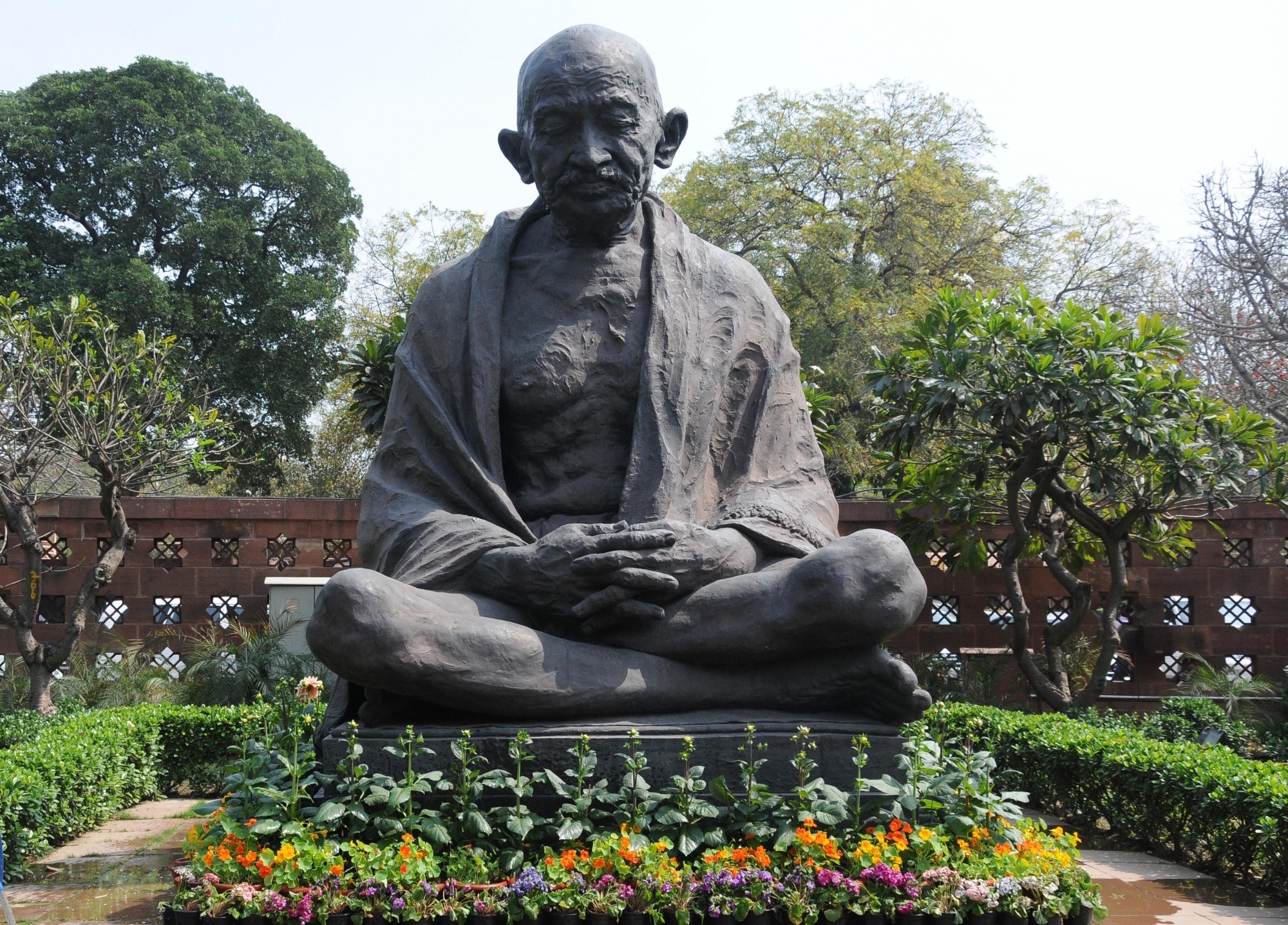BY FAKIR BALAJI Bengaluru, Sep 30 (IANS) As the Father of the Nation and a hope for thousands of people during the first half of the 20th century, Mohandas Karamchand Gandhi (1869-1948) was a source of inspiration for a generation of freedom-fighters to leave homes, studies, jobs and give up a cosy life to free India from the colonial yoke, fondly recalled 102-year-old freedom fighter Harohalli Srinivasaiah Doreswamy, marking the Sesquicentennial of the Mahatma. "I had the honor and privilege of seeing and meeting Gandhiji for a couple of times in Bengaluru during the freedom struggle and joined his non-violent movement to free the country from the imperial rulers under his guidance and phenomenal leadership," a Spartan Doreswamy told IANS in an exclusive interview here. Going down the memory lane, Doreswamy said he met Gandhiji for the first time in mid-1930s when he was a teenager at a state-run guest house in Bengaluru where he was staying to recuperate from a bout of illness at the behest of then Mysuru Maharaja Nalvadi Krishnaraja Wodeyar. "Though Gandhiji visited the city a couple of times earlier on return from South Africa in 1914, first in May 1915 to unveil the portrait of Poona-based Gopala Krishna Gokhale, who was his political mentor in the Lalbagh botanical garden, it was his second visit in 1924 that created a buzz in the city, as he was by then became a popular face of the freedom struggle in the southern region," noted Doreswamy. As a high school ward initially and a college student subsequently, Doreswamy heard a lot about Gandhi by word of mouth, listened to his voice in radio and read about him in the vernacular press those days. "As I was curious to see Gandhiji and listen to his talk on the fight for freedom, my elder brother H.S. Seetharam took me to Kumara Krupa guest house for the prayer meeting one evening in 1936 when I was 18 years and he (Gandhiji) was 67 years old. He spoke in Hindi and English. His memorable words were translated into Kannada by noted scholar D.V. Gundappa for those un-familiar with either language," recounted Doreswamy. A reading of Gandhi's book "My Early Life" influenced a young Doreswamy to plunge into the freedom struggle, giving up studies and an easy life. What started as a trickle in cities and towns across the country, turned into a mass movement with thousands of young people joining Gandhiji's freedom struggle. "I had an opportunity to meet Gandhiji again the same year (1936) when he was staying for about 40 days atop the Nandi Hills on the city's northern outskirts. As there was no public transport, I shifted to Chikkaballapur from Bengaluru and stayed at a relative's place so that I could often go up to the nearby Hills on foot to attend the prayer meeting and listen to his talks. I used to climb hundreds of steps briskly to be in time for the meeting and sit closer to him," Doreswamy recollected. In one of his speeches then, Gandhiji recalled his political guru (Gokhale) advising him to first travel across the country on foot, cycle, bullock carts, buses and trains (Class III compartment) for interacting with the people and know the ground realities than joining a political party (Congress) and resorting to sloganeering against the British Raj. "Though there were no mikes or loudspeakers those days at all places where Gandhiji spoke, I used to sit in the front circular rows around him to catch every word of him in shrill voice so that we could note down and tell others who were behind or were late for the meeting," pointed out the centurion. When Gandhiji gave the "Quit India" call and launched the final movement against the British Raj in August 1942, Doreswamy was arrested in December the same year and was kept in the Bangalore central jail for 14 months till March 1944 as a detainee. "I was inspired by Gandhiji so much that he had a great influence on me. In his book 'My Early Life', I was touched by his call to hug poverty and render voluntary service to the poor and needy. His words had a lasting effect on me to live a frugal life," said Doreswamy. The last time the veteran freedom fighter met Gandhiji was in December 1947 in Mumbai after India got independence on August 15 at a Congress rally. "Gandhji's death on January 30, 1948 in New Delhi was a shock to me because I could not believe that someone could even think of shooting him, as he was a noble soul and lived for others," added Doreswamy. Doreswamy, born on April 10, 1918 near Mysuru, about 150km northwest of Bengaluru, joined the freedom movement when he was in the intermediate college in Bengaluru during the mid-1930s. He was arrested for joining the Quit India movement along with his brother and other freedom fighters. "Though we were caned and treated badly by the British, we followed Gandhiji's ideals of non-violence and satyagraha," reminisced Doreswamy.
When Gandhi inspired a generation of freedom-fighters
- by Rinku
- September 30, 2019 2 minutes

Mahatma Gandhi statue in the Parliament premises. (File Photo: IANS)











